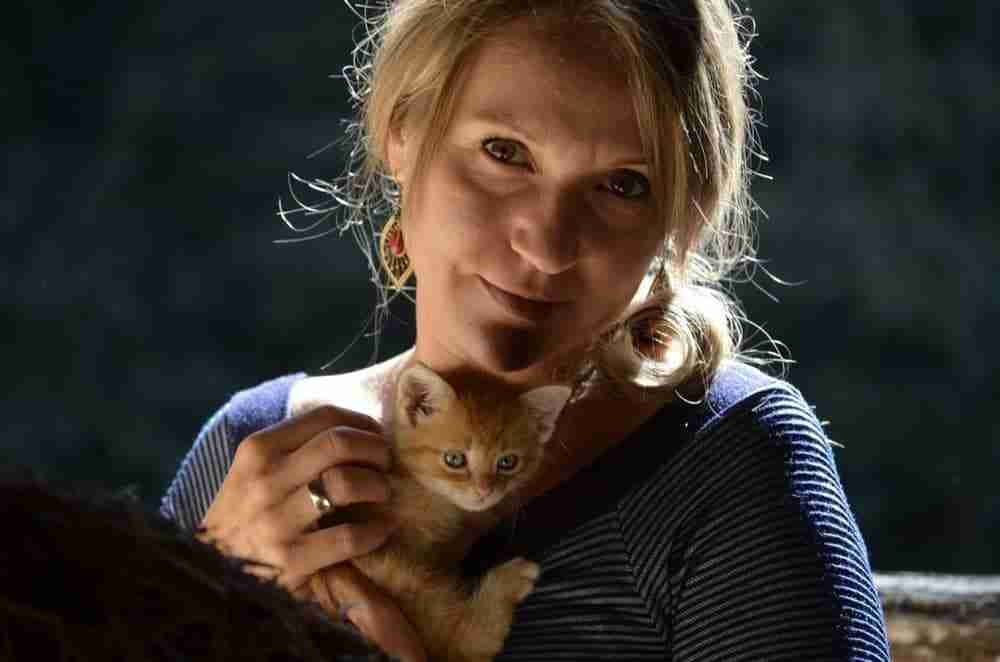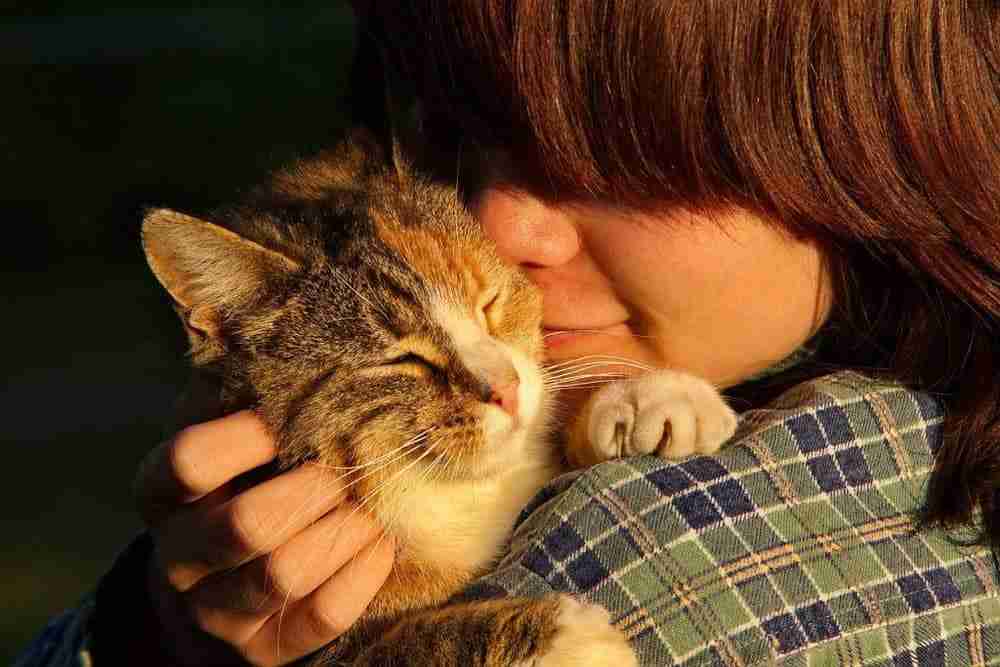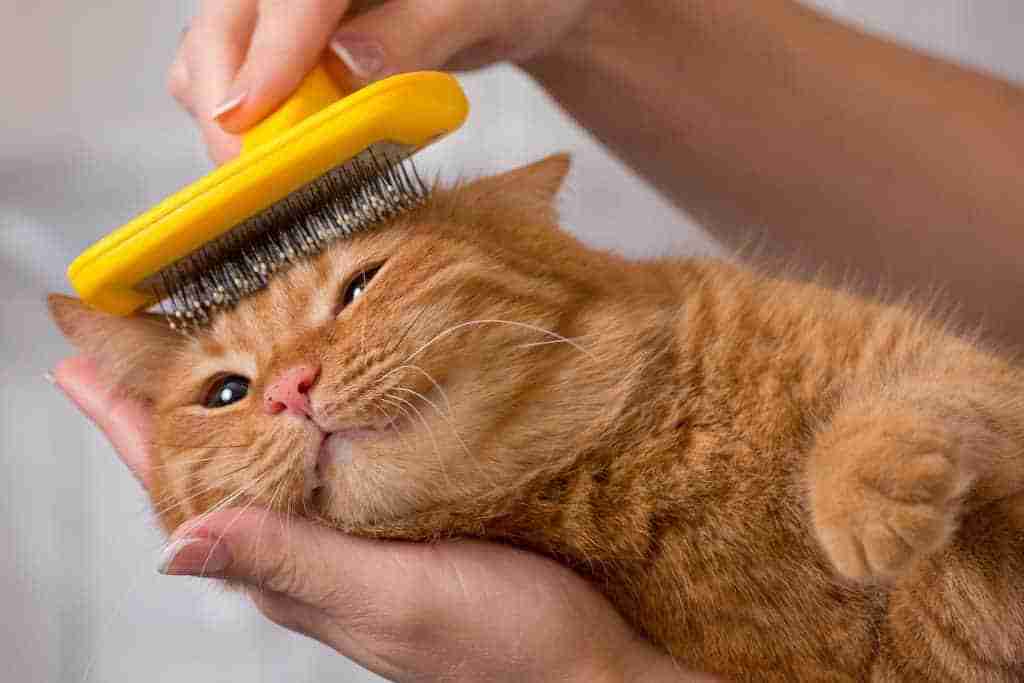How do cats choose their humans? Do they just take a guess? Do they pick up or sense something about the person? Most of the time the human occupies the cat’s maternal void and influences the cat through personality and body language. Let’s check out what happens when cats and humans interact.
Cats are curious animals that are hesitant to trust anyone they meet. If you have an afternoon high-tea with your friends, chances are your cat won’t make an appearance.
As independent animals, most cats don’t like crowds, and they prefer being by themselves. If you live with housemates or you have a family, a cat makes a great pet.
Cat’s tend to attach themselves to their owner, and they have a disdain for anyone else. It can take years for one of your friends to earn your cat’s trust, and until then, your cat acts as if they aren’t there.
However, the last thing you want is for your cat to form an emotional bond with someone else in the house, or they might end up snubbing you.
Some cats are more selective than others with their humans. When you finally make friends with a cat, it starts following you around your home, and you have a friend for life.
So, how do you make your cat choose you over everyone else in the house? How do cats choose their human?

The Evolution of the Feline and Human Relationship
Before we dive into some hands-on tips for building your relationship with your cat, let’s take a trip back through history. Cats and humans have an extensive relationship dated back thousands of years.
There are records of the house cats from the ancient Egyptians. Cleopatra had a soft spot for cats, and the Ancient Egyptian culture would revere the animals, treating them as gods.
However, house cats and humans might go back even further than that. There’s evidence showing humans first started taming cats over 12,000-years ago in the “Fertile Crescent.”
As humans invented agriculture and grain storage, vermin started showing up to devour and contaminate the supplies.
Humans turned to cats to help them eradicate mice and rats from their grain stores. These early accounts of the use of cats started the animal’s domestication over millennia to come.
Then human/cat relationships developed through a natural need from both parties. Humans needed cats for pest control, and cats needed humans for food.
According to scholars and scientists, it’s widely believed cats domesticated themselves into human culture and lifestyle.
Bond at the Beginning
Now that we know why cats and humans first started hanging out together let’s get back to how you can get your new kitty to choose you as their favorite person.
Between the ages of four and nine weeks, kittens don’t have the same perception of fear as adult cats. This period in your kittens is the “socialization” stage, where you need to handle them and play with them as much as possible.
When removing the kitten from its mother, the animal experiences separation anxiety – imagine if someone separated you from your parents when you were small, how would you feel?
It’s the same for cats. However, cats have the ability to latch onto the new influence in their life – namely you.
If you spend enough time with the kitten, they start to see you in the same manner as their mother. Therefore, you form a bond with them as their caretaker.

Understand Your Cats Communications
Cats can’t speak English, but they have a set of unmistakable communications using body language and sound.
From head-bumps to meows, cats have a range of behaviors they use to tell us when they’re hungry, thirsty, or ready to go outside to terrorize the yard and neighborhood.
Understanding your cat’s range of behavioral patterns helps you communicate with them too. Unlike a dog that responds to your calling its name, cat’s will barely move their head.
However, they might flip their ears at you to let you know they heard you. Similarly, if you’re irritating your cat, they might start flicking their tail as a visual warning display.
Some cats’ are more vocal than others, and some owners swear they have “conversations” with their cat. The cat responds with a meow every time you finish a sentence.
By listening to your cat and observing their behavior, they form a better bond with you because they know you’re paying attention to them.
Cats Pick Personalities
Just like humans, each cat has a unique personality. Some might be more passive, while others are aggressive.
Some cats like hanging around humans; others prefer observing your behavior from a distance.
Cat’s also pick personalities in humans that match their specific behavior. If your cat is friendly and you have a conservative, introverted personality, you might find it bonds better with your party-loving flatmate.
However, the best method for bonding with your cat is taking an interest in their daily life and activities. If you care for your cat, feed them, and play with them, chances are your cat will bond with you and not the other people in your house.
However, it’s always a gamble with a new kitten. We recommend keeping your kitten in your room for the first three to four weeks of its life.
Don’t let it get any other contact with outside persons, and it will imprint you as its natural caregiver. During this period, make sure you spend plenty of time playing and talking with your kitten.
The more time you put into them, the stronger the bond between you.

How Do I Become My Cats Favorite Person?
Here are a few tips you can use to make you your felines favorite person in the house.
Food
Always make sure you’re the one feeding your cats. Wait for them to get hungry and feed them. Make sure they see you opening the food and placing it in their dinner bowl.
Playtime
Playing with your kitten activates their natural curiosity and playfulness. Playtime releases feel-good hormones in your cat, making them bond with you.
Safety
Put your cat’s bed in your room. This strategy makes the cat understand where its home is within your house.
Speak positively to your cat
Give your kitty a treat and a pet when they display good behavior.
Give them their space
Cats need to be alone sometimes, so give them their room when they need it.
Cats Like to Hang Out with Nice People
Your cat will naturally bond with the person it feels treats them best. If you’re a nice person and give them the love and security they need, they’ll choose you over everyone else.
